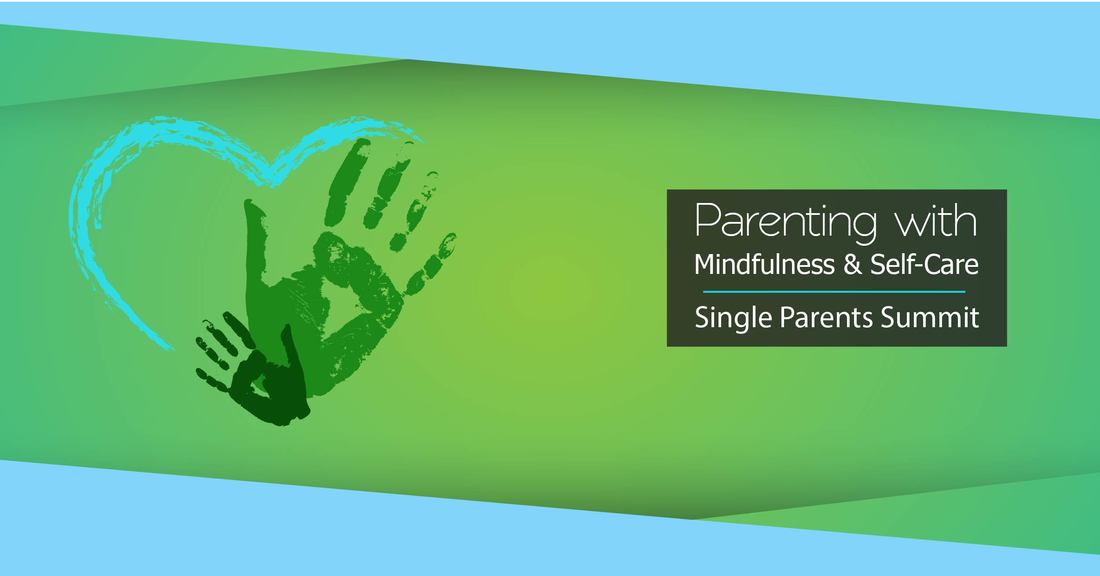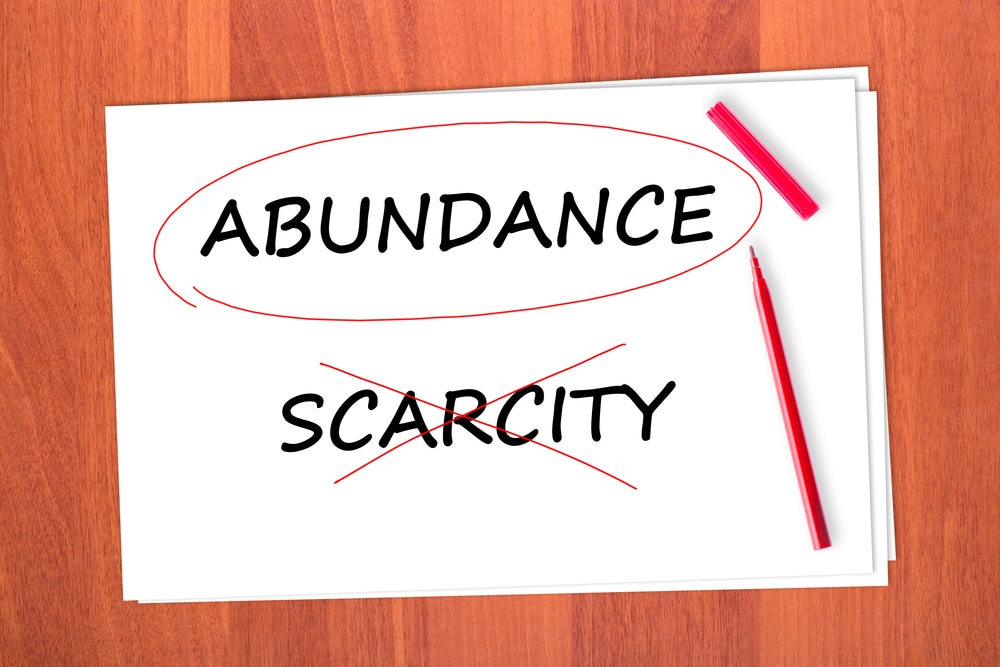|
Are you a single parent feeling overwhelmed by the idea of rebuilding your life?
Whether you're concerned about finances, co-parenting with difficult exes, re-entry into the post-divorce dating scene, or just wondering about how to take good care of yourself, Dr. Robbin Rockett's "Parenting with Mindfulness and Self-Care" video summit has you covered! Dr. Robbin will be sharing a series of 10 videotaped conversations with field experts who will be dishing out their trade secrets--for FREE! You read that correctly. Registration will cost you absolutely nada. Zip. Zilch. I was lucky enough to be selected as a featured expert for the summit and will be providing tips on how to brave the treacherous waters of single parent dating. Spoiler alert: The first ten people who email me after watching the video will receive a FREE online dating profile consultation. So be sure to check it out! The 10-day summit begins today, so time is of the essence. Registration is a snap. Simply follow the link below to get started on building the solo parent life you deserve! www.SoloParentLife.com/summit Dr. Jill Gross is a licensed psychologist, therapist, and counselor. She offers grief therapy, divorce support, and other counseling services in the Phinney Greenwood area of Seattle, WA. If you'd like to learn how to date better after divorce, schedule a free consultation now!
0 Comments
Is it just me or is summer always way busier than you anticipate?
Lately, it seems my eyes are bigger than my stomach, creatively speaking. So blog updates haven't been as frequent. That said, there are a few posts in the hopper, along with a new project that I hope to have more information about soon. So stay tuned! In the interim, some of you may already know how much I LOVE podcasts. I listen to them when I'm walking the dog, cooking meals, shopping for groceries, or working in the yard--they are a multi-taskers dream! What's more, good podcasts always remind me of how much we humans have in common--a comforting thought in times of trouble. I've noticed that boundaries are trending in my therapy, counseling, and coaching practice. Many folks are in the process of either learning about them, setting them, or maintaining them. Boundary work can challenge both our sense of who we are as well our connectedness to those around us. It's enough to make some people want to head for the hills! It is for this reason I wanted to share with you Part One and Part Two of "The Power Of No," two of the latest episodes from one of my very favorite podcasts, "Dear Sugars." Both episodes feature none other than Oprah Winfrey, who candidly discusses her own personal struggle with boundaries. I hope these episodes can be useful to those of you who may be doing boundary-related work as we speak. And remember: boundaries are not punishment. They are protective guideposts for healthy communication! Until next time... Dr. Jill Gross is a licensed psychologist, therapist, and counselor. She offers grief therapy, divorce support, and other counseling services in the Phinney Greenwood area of Seattle, WA. If you've got questions about how boundaries can improve the quality of your relationships, schedule a free consultation now!
People seek counseling or therapy to change what no longer works: careers, lifestyles, friendships, marriages. They’ve labored for months, years, sometimes even decades to make their jobs more appealing, their spouses more affectionate, their families more considerate. Exhausted from the fight, clients come to therapy hoping their therapist or counselor will join the effort. And we do. Just not always in ways our clients expect.
What brings people in the door is frequently not what keeps them there. What is initially described as a problem is usually the beginning of a solution. Jason*, a twenty-three-year-old, second-year medical student, was referred for psychotherapy by a psychiatrist from whom he originally sought antidepressant medication. He didn’t exactly sit on my sofa. He slammed himself against the back cushion and slid, pancake-style, until he was practically laying down and sitting up at the same time. When asked what brought him to therapy, he could barely lift his head to answer. “Depression” was the most he could muster. I probed further. From the time he was old enough to walk, talk, and cut his own steak, Jason was told he was destined to be a physician. For the entirety of his youth, his parents, both surgeons, conveyed to Jason that he had two post-college options: medical school or medical school. Jason was a gifted student to whom science and math came easily. So, after graduating from a prestigious college with a Bachelor’s degree in biology, Jason applied to medical school and was accepted. Off he went. There was only one tiny problem with this plan: Jason hated medicine. A classically-trained pianist, his true love was music. He wanted to play professionally. Because Jason knew his parents would never approve of this choice, he buried his love of music and forged ahead with the mandate to become a doctor. Though Jason’s presenting concern was depression, with time, it became clear that depression was merely a topical symptom: the real issue was Jason’s relationship with approval. He needed approval so desperately he was willing to pay for it with his life--literally. As he whiled the hours becoming more of the person his parents wanted him to be, he was slowly becoming less and less himself. By the time I saw him, he was merely a shell, his own narrative virtually indistinguishable from that of his parents. It was a long and difficult road but Jason eventually found his voice. As he did, the depression lifted. He mustered the courage to put his medical studies on hold and pursue music. His parents weren’t thrilled but, to his surprise, they hung in there. What’s more, Jason decided, on his own, that he would move in with roommates to lower his living expenses and support himself by teaching piano lessons. It wasn’t a king’s ransom but it was a living. At twenty-three, Jason was doing the unthinkable: he was becoming an adult. Jason clung to a medical career to protect both himself and his parents from the dilemma of having to choose their real-live son over their idealized version of him. The most difficult part of Jason’s journey was not abandoning a career he never wanted to begin with, but trusting that he was strong enough to withstand the discomfort of telling an authentic but unpopular truth. In so doing, he untethered himself from the core belief that his well being was contingent upon the approval of those he cared about. With the need for external validation no longer powering the engine, Jason was not only surviving; he was actually thriving! Jason’s story is not unique. For many of us, fear manifests as immutable obstacles we tell ourselves we cannot live with or without. We cannot leave the job that is giving us bleeding ulcers because we need the money. We cannot ask for what we want because our spouses will leave us. We couldn't possibly sell the house that is bankrupting us. Over and over, we plead with life to change in one breath while weaving stories that are designed to keep it the same in the other. It is not the obstacles themselves that keep us stuck, it is our relationship with the meaning we have imbued those obstacles with. Most obstacles serve a protective function. They shield us from our deepest fears and the dependencies that maintain them. They keep us at a healthy distance from what we are not yet ready to know or experience. We struggle to find a way out of suffering not because we don't have answers but because we haven't yet found the right questions. Had Jason and I focused solely on eradicating his depression, we would not have seen that the real issue was a dependency that was preventing him from knowing his own strength. We cannot succeed at removing the barriers to change unless we first understand and acknowledge their benevolent purpose. If you're on the cusp of making an important change and something appears to be holding you back, remember that you have chosen this obstacle for a reason. Try not to blame yourself here--there is no sense in heaping suffering on top of pain. Reminding yourself that you are the architect of your obstacles can be a way of offering hope that, when you are ready, you will draw up a different blueprint! How have you overcome obstacles in your life? Tell us about it in the comments section below. *Names and identifying information have been altered to protect patient confidentiality. Dr. Jill Gross is a licensed psychologist, therapist, and counselor. She offers grief therapy, divorce support, and other counseling services in the Phinney Greenwood area of Seattle, WA. Are obstacles getting in the way of you having the life you deserve?
Something strange is happening in Seattle. Mother nature appears to have gotten the memo, albeit a month later than the rest of the country, that Spring has arrived.
As I’m writing this, it’s a balmy 74 degrees outside, the gardens are in full bloom. Like earthworms after a good soaking, Seattleites are creeping out in droves from their bookstores and coffee shops to pay tribute to the one thing we all yearn for but cannot control: the sun. Closet mainstays of Gortex and fleece have been temporarily exchanged for tank tops and shorts. The Greenlake lawn is smattered with blankets and picnic baskets. Translucent limbs gently tip toward the golden orb that forsakes them for two-thirds of the year. Fellow park goers pass one another with chins held a little higher, smiles a little wider, freely spouting weather-related pleasantries, exchanging gleeful, knowing glances. It is as if everyone in the city is holding the same winning lottery ticket. While out walking today, I started thinking about why Seattleites go nuts when the weather is nice. A story came to mind about a man who immigrated to the United States from a poor, rural part of India. Upon his first trip to an American grocery store, the man fell to his knees and wept. When his companion asked why the man was crying, he replied, “Such abundance! How is one to appreciate anything?” Indeed, the first sunny day in Seattle nicely exemplifies how scarcity can beget tremendous gratitude. The city's residents savor every moment of sunshine because we know it won’t be long before it disappears. We resent the rain, yet we also know it is the prerequisite for the flowers and fruit trees that dazzle us come springtime. Life is the same way. When we are experiencing a long stretch of suffering or scarcity for which there is no scheduled ending, it is easy to get mired in dark emotions. Every human emotion comes with its own, unique script. Most commonly, when we are suffering, we feel hopeless which, for most of us, sounds like “I am trapped in a hole that is too steep to climb. I will be here forever.” These thoughts are pretty convincing. They seem real, but they are not true. Hopelessness is just like any other emotion, free to come and go, once fully permitted to exist. It is normal to resist suffering out of fear of being carried away by its undertow. In lieu of curious examination of our feelings, we often shame or judge ourselves for having them. Allowing space for dark emotions is not synonymous with succumbing to them. The opposite is true. The more we resist what we are feeling, the more likely our feelings will manifest in ways that don’t serve us (e.g., explosive rage, drinking or drug use, shopping, gambling, etc). In other words, we are fated to act out our feelings until we are ready to learn from them. Life is fraught with suffering. We cannot sidestep it altogether; we must go through it. Here are a few things to keep in mind as you inch your way forward:
Sometimes the lessons we are meant to learn from suffering require additional resources, such as a licensed psychologist, therapist, or counselor. If everything you’ve tried on your own doesn’t seem to be working for you, widen your circle to include a trusted professional. Your mental health is worth the investment! Have you found an effective way out of suffering? Tell us all about it in the comments section below! Dr. Jill Gross is a licensed psychologist, therapist, and counselor. She offers grief therapy, divorce support, and other counseling services in the Phinney Greenwood area of Seattle, WA. Scarcity got you down? Schedule a free consultation to find out how therapy or counseling can help you lead the life of abundance you deserve!
A friend and I were chatting the other day about relationships. After a season of self-prescribed abstinence from the online dating community, this friend (a bright, vibrant forty-something) decided to jump back in the game.
My comrade had recently met an attractive individual with similar interests, goals, and values. She had assumed, were this to happen, that she would be awash with positive emotion. She assumed incorrectly. Instead of bunnies, rainbows, and Oprah moments, my dear friend was wracking her brain for the myriad of ways something could go wrong in the relationship. Perhaps her date would see aspects of her life that are still under construction. Perhaps her affection for this prospective partner would be unreciprocated. Perhaps the whole thing would crash to the earth in a magnificent fireball. In other words, the very thing my friend thought would fulfill her was now the source of considerable discomfort. My friend’s experience is actually quite common. On the verge of accomplishing our goals, it is common for many of us to feel restless or agitated. Why does this happen? The answer is somewhat complex. Longing is an unconscious manifestation of scarcity, the pervasive belief that we are not enough and/or that we do not have enough. Scarcity is fueled by fear and self-doubt. These feelings come with a dialogue that usually begins with “what if” and ends in loss or catastrophe. These stories can feel so real sometimes, we start responding to them as if they are true. They are not. They are merely representations of emotions that are meant to come and go. When we are anxious or fearful, our bodies and brains are compelled to seek—sometimes obsessively—for the people, places, or things we think will deliver us from scarcity. We are seduced by the notion that the perfect partner, job, house, will be our one-way ticket out of painful feelings. The greater our fear, the more urgently we seek to quell it. The wiser mind knows this is a fool’s errand, but fear is an irresistible salesman. Seduced by the idea that deliverance is just one person, place, or thing away, we become consumed by thoughts of the future. In so doing, lose touch with what we are feeling in the present moment. I like to call this “the seeking trance.” When we find what we are looking for, the trance is broken, our love affair with “someday” abruptly ends, we are catapulted into the present moment, and the feelings we were attempting to avoid come rushing into consciousness. Suddenly, the object of our craving becomes someone or something we don’t trust. Online dating can be a sticky wicket for precisely this reason. Each profile is carefully crafted by an individual who has his or her own unique relationship with fear and scarcity. The result is a collective mass of fear-based energy that manifests in unanswered messages by individuals who proclaimed interest, promising first dates who mysteriously disappear, salacious electronic threads that never yield an in-person meeting. (Sidebar: no wonder my friend was feeling overwhelmed by fear—online dating is a veritable roller coaster of hope and disappointment!) The next time you sense urgency in the absence emergency, this is a cue to pause and inquire. Ask yourself what you are afraid of. When we give a voice to fear, we deflate its power. Name your fear(s) out loud. If a child experiencing the same fear approached you for reassurance, how would you respond? Would you judge or criticize this child or would you surround him or her with loving grace? I suspect you would do the latter, so offer this gift to yourself. Repeat this process as often as needed. Remember that fear and desire are opposite sides of the same continuum. To move from one end, we must lovingly attend to the other. When we really listen to our fear, when we respond to self-doubt with loving kindness, we inch closer to desire. Just as fear begets scarcity, desire beget abundance. When we act from a fearful place, our energetic field constricts, practically guaranteeing we will not find what we are seeking. When we act from a place of authentic desire, we make room for the things want to find us and, when they do, we are more likely to value them. Dr. Jill Gross is a licensed psychologist, therapist, and counselor. She offers grief therapy, divorce support, dating consultation and other counseling services in the Phinney Greenwood area of Seattle, WA. Want to have a richer, more satisfying online dating experience? Schedule a free consultation now!
I often feel unsure about what is harder: parenting or comparing myself to other parents who seem to have it more "figured out" than I do.
This video clip from Julie Lythcott-Haims, author of the acclaimed book, "How To Raise An Adult," served as a nice reminder that it is okay--no, it's necessary--to remove our hands from the yoke on occasion and let our children figure out how to fly, even when that mechanical beast is pointed straight toward the earth! Just Wednesday morning, my daughter, God love her, chose to oversleep, giving herself barely enough time to apply the copious amounts of expensive makeup she insists on buying (with her own money, I feel compelled to add), let alone eat breakfast and make lunch. While wolfing down a bowl of cereal she asked me if I would put a bagel in the toaster so she could eat it for lunch. Was I doing anything of significance? No (well kind of. I was writing this article). Did I toast the bagel for her? Hell no! Though the request seemed innocuous enough, toasting that bagel would have reinforced her failure to plan accordingly. Was she be hungry that afternoon? Certainly. Did she die of malnutrition? Certainly not. Did she rise fifteen minutes earlier the next morning? In fact, she did. Our job is to equip our children to cope with life which--newsflash--is FILLED with frustration, disappointment, and failure. How can they learn to handle the bumps and scrapes if we never let them fall? Though most parents say they over-function because they are afraid of how their children will feel if they don't, it is more accurate to say parents are afraid of how they will feel if they step aside and let their children construct and deconstruct their own messes. In other words, we parents are just plain uncomfortable with feeling uncomfortable. Discomfort is the enemy of neither parent nor child. It is the precursor to self-advocacy, learning a new skill, making a new friend, or solving a problem, all of which are required for proper grownup-ing. When our children lose or fail, they will feel badly for a while. This is a normal, healthy response to disappointment. Eventually, they will feel better and, each time they do, they grow a little more confident in their ability to overcome challenge. More and more in my therapy and counseling practice, I see young people who are riddled with fear and self-doubt, struggling with even the most basic of decisions. This is no longer the exception. It is becoming the norm. Research out of institutions like Keene State College and The University of Tennessee at Chattanooga are suggesting a strong correlation between helicopter parenting and poor social adjustment, higher levels of anxiety, and depression. Not quite what we had in mind when we were busy forming a human shield between the the edge of the sofa and the coffee table. Some of the most valuable lessons we learn come from what, at the time, would have easily been considered failures, mistakes--disasters even. Why deprive our children of such critical learning? So we won't judge ourselves for being neglectful? So others won't think we are bad parents? According to Lythcott-Haims, if we want to foster our children's self-esteem and self-efficacy, here are some good places to start: 1. Give them chores. Children who do chores are happier and more confident than children who don't. If children live in a house, they should be responsible for some of its maintenance. This is not punishment; it is modeling of appropriate social responsibility. Do you want your child to be the roommate no one wants to live with because he leaves dishes in the sink and clothes on the bathroom floor? Me neither! By age three, children are old enough to clean up their toys, load the dishwasher (yes, you read that correctly. Don't panic. You can rearrange them later when your child isn't looking), put dirty clothes in a hamper, etc. Increase the level of responsibility with age. My children (now 13 & 15) have been doing their own laundry for several years and it has been GLORIOUS! Sure, their socks and whites look like they escaped from the set of "Joseph's Technicolor Dreamcoat," but who cares? They don't. Neither should I. 2. Back off school. Stop asking about homework, stop doing it for them (sidebar: this should never have been started to begin with), and don't ask about school performance or grades. You already passed the K-12 grades; it's their turn now. If they are struggling, ask them what they think needs to happen to get back on track. If your kid needs extra help, hire a tutor. The headcount of parents who say tutoring their own child was more helpful than frustrating? Just about zero. 3. Stop calling their teachers and coaches. Instead, teach your kiddo how to respectfully communicate with authority figures. They need to know this stuff! 4. Teach basic life skills. I have a friend who is requiring that her teenagers know how to procure and prepare at least ten recipes before graduating high school. If you want your kids eating more than just ramen noodles and mac-n-cheese once they get to college, start taking them to the grocery store with you. Let them go through the check stand by themselves. Teach them how to cook. Show them how to use public transportation, apply for a job, open a bank account, balance a checkbook, fill out a tax form, etc. Think of everything they will be responsible for once they move out and show them how to do it on their own. Lythcott-Haims outlines a four-step method for doing this: First do it for them, then with them. watch them do it, and then let them do it themselves. In lieu of asking ourselves what more we can do to help our children succeed, perhaps it's time to ask what less we can do instead. It can be scary to give up control. So many of us believe our children's choices are a reflection of our parenting. This is sort of true--they do absorb the values we model. But mostly it's not. Our job is to plant the seeds and show our children how to garden. The rest is entirely up to them. Let's learn from each other! Got a self-efficacy success story? A question or concern? Feel free to share it in the comments section below. Dr. Jill Gross is a licensed psychologist, therapist, and counselor. She offers grief therapy, divorce support, and other counseling services in the Phinney Greenwood area of Seattle, WA. Parenting struggles got you down? Schedule a free consultation to find out how parenting support and counseling and help you!
In Part One of this series, we explored why people lie and the impact of dishonesty on relationships. This week, we will endeavor to answer the two most common questions asked of therapists and counselors by individuals and couples whose lives have been shattered by betrayal: Can the relationship be rebuilt and how long will it take?
So little of therapy or counseling is governed by hard-and-fast rules. This can be frustrating for clients desperately seeking clarity after being hoodwinked by someone they loved and trusted. Typically those who have betrayed their partners are eager to bury the hatchet (to assuage their guilt or shame) while the betrayed need time for the pain of its blow to subside. Reparability is contingent upon the following factors:
Trust is regained when actions and words align over time. Partners can say they want to repair a relationship but, if they are unwilling to do what is needed, these words are meaningless. Betrayers must display a solid track record of being where they said they would be, when they said they would be there, doing what they said they would be doing with whom they said they would be doing it. "Deposits" in the trust account must be made repeatedly until the balance is significant enough to offset the recent withdrawal. Some couples view betrayal as an opportunity to form a stronger, more satisfying union. Others see deception as the harbinger of an ending. I once worked with a young woman whose husband had a lengthy affair with a female colleague. Just months earlier, the client discovered her husband had been sending inappropriate texts to other women. After a year of obsessive thoughts, frequent checking of her husband's phone, and barely-contained urges to follow him every time he left the house, the client realized that remaining in the marriage was costing her dignity. This was ultimately too high a price to pay so she left the marriage. As the healing process unfolds, both the deceiver and the deceived must ask, based on what they know to be true about themselves, whether the pain of rebuilding is preferable to the pain of leaving. As this young woman's story suggests, we must know ourselves well enough to be honest about the answer. How long does healing take? For those who choose to rebuild, repair time depends on the severity of the wound and the preexisting level of trust between partners. Those who trust easily tend to rebound faster than those who do not. It can take one to two years, sometimes longer, for a betrayal to fade into the backdrop. During this time, it is helpful for couples to generate new, positive memories together. This is an excellent time to explore new hobbies together, take extended vacations, learn new skills, etc. Couples can also opt to renew marriage vows or create other rituals to signify new beginnings. It is easier to leave the past in the rear view mirror when we are focused on the road ahead. Painful though it may be, deception is always a catalyst for healing and growth. We only blow up our lives when part of us is yearning to refashion the pieces. Whether we are the deceiver or the deceived, it is important to remember that every betrayal draws our attention to what can no longer be ignored. Some truths are incredibly painful to confront, particularly in the beginning, but we are usually better off for doing so. If you are currently struggling with the aftermath of deception, consider getting help from a licensed psychologist, counselor, or therapist. Whether you choose to seek therapy or go it alone, remember that people can and do heal from betrayal. If you are willing to keep your eyes and heart open, you can be one of them! We have so much to teach and learn from each other. Have you survived betrayal? Did you learn something valuable from it? Are you still figuring it out? Feel free to discuss your experience in the comments section below. Dr. Jill Gross is a licensed psychologist, therapist, and counselor. She offers grief therapy, divorce support, and other counseling services in the Phinney Greenwood area of Seattle, WA. Has your relationship been torn apart by betrayal? Schedule a free consultation to see how couples counseling or individual counseling can get you on the road to recovery!
One morning, not long ago, I overheard a conversation between the host of NPR's "Morning Edition" and some distinguished law professor from one prestigious university or another—you know the drill.
The two were bantering back and forth about the meaning of the word "truth." Up until now, the word has always been understood to mean any thing or event that actually happened. Apparently, truth's ratings have been sagging; Donald Trump wants to give the word a sorely-needed makeover. In the 2003 movie "Something's Gotta Give," Harry (played by Jack Nicholson) and his love interest, Erica (played by Diane Keaton), are struggling to create a meaningful connection with one another. Harry, a long-time womanizer with questionable integrity, explains that he has never lied to Erica. Instead, he has always told her "some version of the truth." In response, Erica snaps back, "The truth does not have versions!” Indeed, until about a month ago, it did not. If The Administration has its way with us, the definition of "truth" will stretch to include opinions or ideas that, when emphatically stated over and over again, are accepted as fact, regardless of their veracity. If the public buys this new-and-improved rendition of truth, as a psychotherapist, I cannot help but wonder about the impact this will have on our intimate relationships. I am often enlisted to provide individual and couples counseling for those whose lives have been shattered by dishonesty. People lie or keep secrets about all sorts of things: history, fidelity, spending, addictive behavior and, in extreme cases, even their identities. Whether big or small, I have found all lies have one thing in common: they forge distance between ourselves and our intimates. A lie is a carefully built wall that neither we nor others can scale. The basis of meaningful connection is shared reality. If I see a dog and you see a fish, any conversation we have about this animal will be meaningless. A lie renders impossible the shared experience upon which trust and intimacy are predicated. Why, when given a choice between closeness and distance, do some of us choose the latter? I think it happens for several reasons.
Lies are exponential: we must continue to tell them to keep truth hidden. This can get tricky so most skilled liars tell partial truths to avoid slipping up. Partners may get some of the “who, what, where, how, when, and why" of a story but any detail that threatens to topple the house of cards will be withheld. No matter how adept any of us are at deception, it is in only the rarest of cases that the truth remains indefinitely hidden. Truth demands to be told. Lying forfeits our jurisdiction over how and when this happens. We may think we've done a sufficient job in covering our tracks but it is only a matter of time before we forget to minimize the screen before our lover enters the room, log out of a secret email account, or are spotted by a co-worker or neighbor doing something we shouldn't be doing. We avoid the truth to prevent suffering but, in so doing, end up creating far more of it. Instead of grieving only the pain of a difficult truth, the deceived is humiliated over having played the lead role in a story without full access to its script. Additionally, those who have been betrayed suffer tremendous doubt. Doubt of themselves for misplacing their trust and doubt about where the line between fact and fiction existed their relationship. In the aftermath of betrayal, the two most common questions I hear in therapy are “Will I (we) get past this?” and “How long will it take?” We will explore the answers to these questions in Part Two of this series. So stay tuned. In the meantime, has deception played a role in any of your past or present relationships? If so, what did you do about it? Feel free to share your thoughts anonymously in the comments section below. Dr. Jill Gross is a licensed psychologist, therapist, and counselor. She offers grief therapy, divorce support, and other counseling services in the Phinney Greenwood area of Seattle, WA. Has your relationship been torn apart by betrayal? Schedule a free consultation to find out how couples therapy or counseling can put you on the road to recovery! Last week, on "Solo Parent Life," Dr. Robbin Rockett released Part One of a two-part series on Dating After Divorce. In that segment, Robbin and I discussed the importance of knowing what you want, what you don't want, and knowing when you are ready to start dating. In Part Two, Robbin and I discuss the finer points of online dating. Is your "type" no longer working for you? Want to write a killer profile? Interested in finding out how to distinguish a "yes, please" from a "no, thank you?" Tune in to Part Two of Dating After Divorce to learn more! Dr. Jill Gross is a licensed psychologist, therapist, and counselor. She offers grief therapy, divorce support, and other counseling services in the Phinney Greenwood area of Seattle, WA.
Want to learn more about to have a richer, more satisfying post-divorce dating experience? Schedule a free consultation now! As Associate Producer of "Death: the podcast," I am behind the scenes pre-screening prospective guests, writing copy, and basically doing whatever is needed to keep the gears oiled. Recently, I took a turn in front of the microphone for a great new podcast called "Solo Parent Life." Hosted by psychologist and single parent, Dr. Robbin Rockett (I know--doesn't she have the BEST name ever? I love it!), the podcast provides support for those of us who are courageously traversing the path of the single parenthood. After a bit of post-divorce dating trial-and-error, I developed a system that helped me land a terrific guy (admittedly after kissing a few frogs). So I leapt at the chance to share some single-parent dating tips with Robbin's listeners. There was so much ground to cover, Robbin decided to split the show into two parts! How do you know when the time is right to start dating? What is the first step? What's the best frame of mind to adopt as a post-divorce dater? Find out by clicking the link below. And stay tuned for Part Two, due out next week. Enjoy! Dr. Jill Gross is a licensed psychologist, therapist, and counselor. She offers grief therapy, divorce support, and other counseling services in the Phinney Greenwood area of Seattle, WA. Want to learn how to date better, post-divorce? Schedule a free consultation now!
|
AuthorDr. Jill Gross is a licensed psychologist, specializing in grief and divorce. Her coaching and therapy practice is located in the Phinney - Greenwood area of North Seattle in Washington. Archives
May 2021
Categories
All
|
HoursM-TH: 8:30 AM - 2:00 PM.
By Appointment Only |
Telephone & Email |
Address503 N. 50th Street
Seattle, WA 98103 |
*Header Photographs courtesy of Josh Martin











